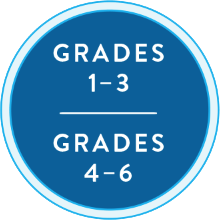Programs Overview

 Maria Montessori believed that the most important period in a child’s development was from birth to age 6. The Infant Community provides a nurturing and cooperative first social experience for the child of 14 months to 3 years of age. With the support of a Montessori-trained guide and an assistant, the 12 children in the community practice the skills of refinement of movement, early language, and what Montessori calls practical life.
Maria Montessori believed that the most important period in a child’s development was from birth to age 6. The Infant Community provides a nurturing and cooperative first social experience for the child of 14 months to 3 years of age. With the support of a Montessori-trained guide and an assistant, the 12 children in the community practice the skills of refinement of movement, early language, and what Montessori calls practical life.
 PRIMARY
PRIMARYChildren ages 3 to 6 possess “the absorbent mind”—the ability to learn many aspects of one’s culture and environment with seemingly little effort. In the Primary environment, this extraordinary stage of development is supported with an array of manipulative materials in subjects including mathematics, language arts, and cultural studies. The Primary classroom enables children to move at their own pace in a stimulating environment that cultivates their natural desire to learn.
 ELEMENTARY
ELEMENTARYFrom ages 6 to 12, children become reasoning explorers, developing new powers of abstraction and imagination, and a heightened interest in social life and justice. Capitalizing on their growing intellectual capacities, the Montessori Elementary curriculum introduces children to the vastness of the universe and emphasizes the interconnectivity between subjects as diverse as astronomy, biology, chemistry, history, religion, language, and mathematics.
 ADOLESCENT COMMUNITY
ADOLESCENT COMMUNITY
